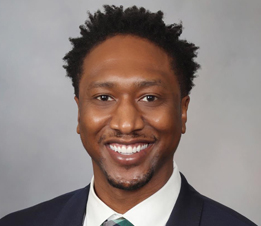Periprosthetic Shoulder Fracture

Periprosthetic Shoulder Fracture Specialist
A periprosthetic shoulder fracture is a fracture in the bone supporting a shoulder implant. It is more likely in the elderly or those with osteoporosis or rheumatoid arthritis. Women have a slightly higher risk. Shoulder specialist, Dr. Kelechi Okoroha provides diagnosis and individualized non-surgical and surgical management for periprosthetic shoulder fracture in Minneapolis. Contact Dr. Okoroha’s team for an appointment today!
What is a Periprosthetic Shoulder Fracture?
A periprosthetic shoulder fracture is a fracture that occurs in the bone adjacent to a shoulder prosthesis.
Risk Factors for a Periprosthetic Shoulder Fracture
The risks factors for a periprosthetic shoulder fracture are:
- Reduced bone mineral density (osteoporosis or osteopenia)
- Female sex
- Advanced age
- Rheumatoid arthritis
Classification of Periprosthetic Shoulder Fractures
Periprosthetic fractures can be classified based on the location of the fracture in relation to the implant stem tip within the arm bone (humerus).
- Type A: Fracture is present near the stem tip, extending towards the shoulder
- Type B: Fracture is present near the stem tip, extending towards the elbow
- Type C: Fracture is present away from the stem tip towards the elbow
When periprosthetic shoulder fracture is suspected, it is important to schedule an orthopedic consultation for proper examination and care. Dr. Kelechi Okoroha is a shoulder specialist who provides detailed examination and care for patients with periprosthetic shoulder fracture in Minneapolis, St. Paul, Rochester, Eden Prairie, Minnetonka, Minnesota and beyond.
Diagnosis of Periprosthetic Shoulder Fractures
Dr. Okoroha will perform a careful physical exam to ensure blood vessels and nerves passing near the fracture site have not been injured. Imaging studies such as X-rays and CT scans may also be ordered to evaluate implant stability, bone quality, and soft tissues.
Treatment of Periprosthetic Shoulder Fractures
After careful review of your history and examination Dr. Okoroha will provide an individualized treatment plan to help you return to your normal function.
Nonoperative treatment with a fracture brace may be an option if:
- The fracture is located below the implant stem tip
- There is acceptable fracture alignment
- The prosthesis is well fixed
When the fracture line crosses the tip of the prosthesis and extends towards the elbow, open reduction and internal fixation (ORIF) of the fracture may be required. This can be achieved with the surgical placement of plates and screws or surgical wires to stabilize the fracture. Replacement with a long-stemmed implant that extends beyond the fracture line may also be required.
Revision surgery to replace the implant should be considered when the fracture line encompasses most of the shoulder prosthesis or if there is a loosening of the prosthesis.
Prognosis of Periprosthetic Shoulder Fracture Fixation
Overall, the prognosis is good as many cases can be treated nonoperatively. However, fixation of periprosthetic shoulder fractures can be very complicated, and each case is treated individually, depending on the severity of the fracture and the condition of the prosthesis.
If you have experienced a periprosthetic shoulder fracture, please contact Dr. Kelechi Okoroha, orthopedic shoulder specialist treating patients in Minneapolis, St. Paul, Rochester, Eden Prairie, Minnetonka, Minnesota and beyond.








